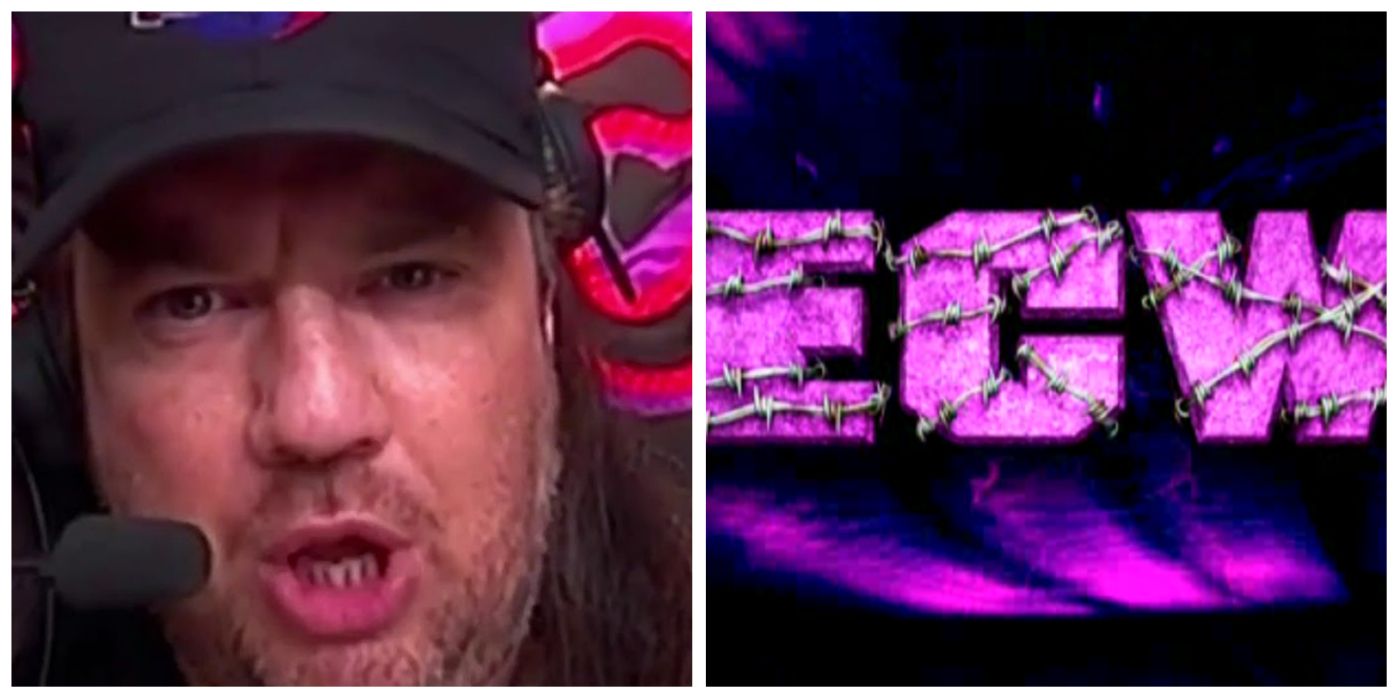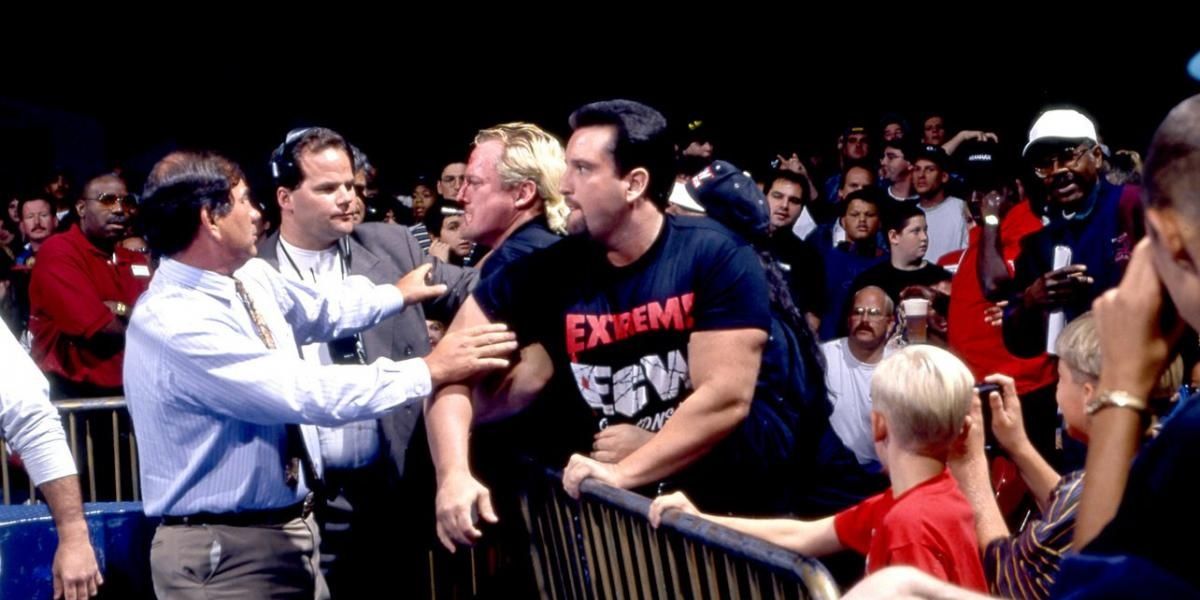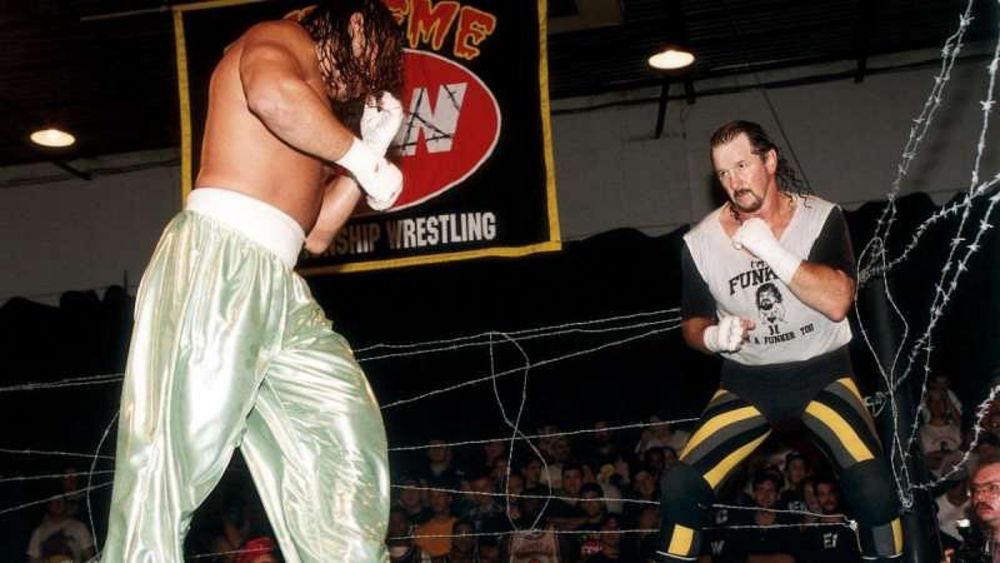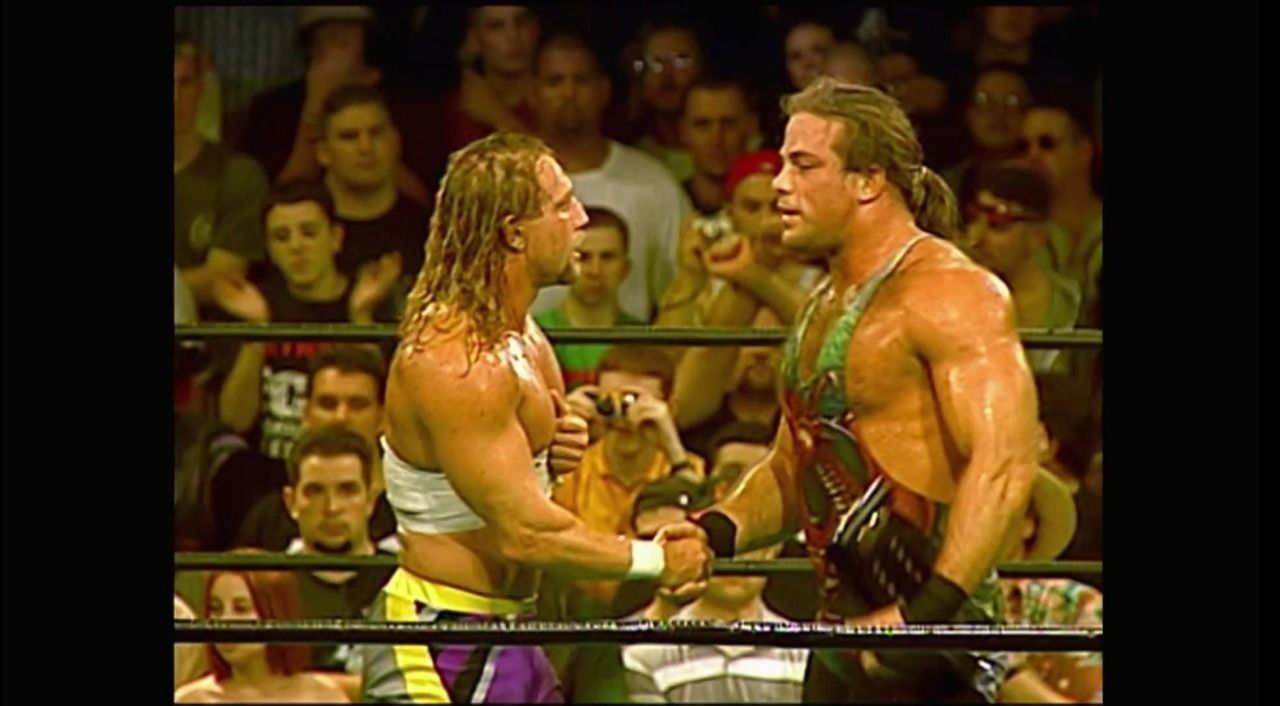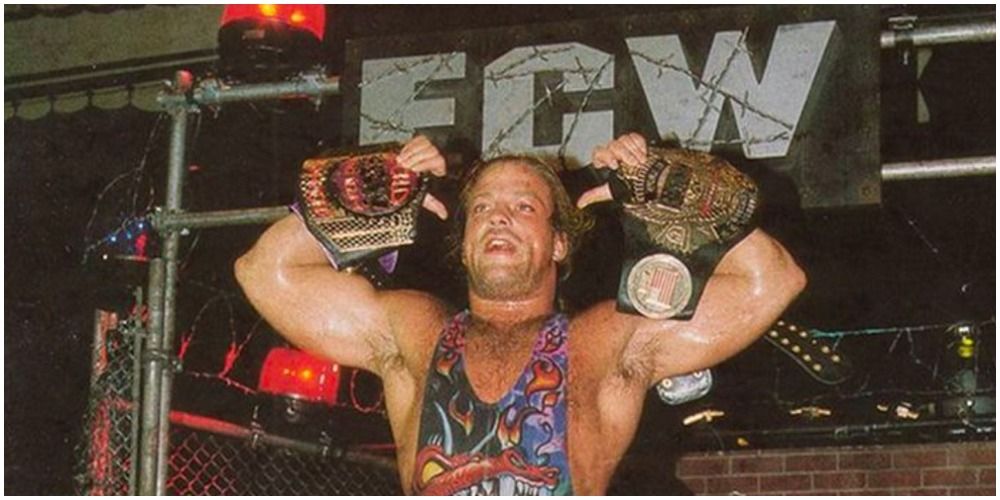Quick Links
In the mid to late-1990s, Extreme Championship Wrestling made its mark in the wrestling industry, becoming a cult-following sensation during the 1990s wrestling boom period. ECW was never on the same level as WWE and WCW regarding mainstream exposure in the United States. However, to this day, ECW did achieve a level of popularity where the promotion was able to secure a major TV deal in late 1999. Despite the promotion's initial success, it didn't last long ,as ECW lost its TV deal with TNN while experiencing financial issues, thus closing its operations not long after.
ECW's Importance To 1990s Wrestling
1990s professional wrestling was the wild west in so many ways. From WWE's Attitude Era to WCW at its prime with the New World Order angle, there's a reason why 1990s wrestling is considered by many to be the most exciting period in the industry. Since then, professional wrestling hasn't had the same level of mainstream popularity as it did in the late 1990s, as there were many exciting choices for fans to tune in to watch.
One of those choices was the underground sensation, Extreme Championship Wrestling. It became one of the most influential forces in wrestling, even to this day. Though not on the same level as WWE and WCW regarding popularity, ECW's following is well-known for its passionate fandom, considering it helped the company stand out from other juggernaut promotions.
The hardcore wrestling style of ECW had a lot of influence on other promotions adapting to that style in their programming. For instance, WWE producing adult-oriented TV in the late 1990s had similarities of ECW, considering the over-the-top explicit content that ECW revolutionized. It's worth noting that WWE's Attitude Era, which launched the company past WCW's ratings stranglehold, stemmed from ECW, despite never being nearly as popular as WWE.
ECW Gets A TV Deal On TNN
ECW's gritty style of hardcore wrestling helped the promotion gain prominence throughout the wrestling world, o much so that ECW had a cross-promotion relationship with WWE when ECW wrestlers started appearing on WWE programming in 1996. Such exposure helped ECW get more attention, making their presence felt as a viable alternative for adult-oriented wrestling. As they even started producing PPV events in 1997, ECW scoring a TV deal with TNN in 1999 was a turning point for the promotion to expand their fandom in one of the hottest periods in wrestling.
Broadcasting a weekly-televised show from August 1999, ECW on TNN became the network's highest-rated show, despite receiving little advertising. Even as ECW gained little budgeting for their weekly show, a TV deal with a network like TNN was highly beneficial for the promotion, as ECW's eventual downfall had much to do with not having a new TV deal after its relationship with TNN ended.
ECW's Downfall And Closure
ECW started experiencing financial difficulties around 2000. What made things worse for the company was TNN's decision to cancel ECW's weekly programming in favor of WWE's Raw is War, which caused a massive blow to the company, leaving its demise was on the horizon.
ECW attempted to find a new TV deal, but nothing came about, as the company aired its final PPV event, Guilty as Charged, on January 2001. A few months later, as financial struggles continued, ECW officially closed its doors in April 2001.
For those who may not be familiar with how bad ECW's financial problems were, the company owed millions of dollars, including unpaid salaries for many of its workers. For instance, top ECW wrestler Rob Van Dam was owed at least $150,000, and ECW commentator Joe Styles was owed $50,000. It says a lot about a wrestling promotion's finances when its valued talents like RVD and Joey Styles aren't getting paid on time.
Overall, it was revealed that ECW owed over $8 million in unpaid bills, so it's no surprise that the company folded after losing its TV deal with TNN. Despite being an underground phenomenon in the 1990s, it wasn't enough to keep ECW around, at least not without enough financial backing like WWE and WCW had.
ECW's Failed Relaunch By WWE
After purchasing its assets in 2003, WWE attempted to relaunch ECW as a separate brand and TV show in the summer of 2006. Signing a TV deal with Sci Fi, it appeared that ECW could succeed with the financial backings of WWE and with the creative vision of Paul Heyman. However, WWE's version of ECW never took off as expected, and ECW on Sci Fi was canceled in 2010 after less than three years on the air. From that point, it's best to leave ECW to rest and not be tainted, as its influential legacy will live forever in the wrestling business.

